CHAPTER I.
您可以在百度里搜索“Pierre: Or, The Ambiguities 艾草文学(www.321553.xyz)”查找最新章节!
BOOK XVIII.
PIERRE, AS A JUVENILE AUTHOR, RECONSIDERED.
CHAPTER I.
INASMUCH as by various indirect intimations much more than ordinary natural genius has been imputed to Pierre, it may have seemed an inconsistency, that only the merest magazine papers should have been thus far the sole productions of his mind. Nor need it be added, that, in the soberest earnest, those papers contained nothing uncommon; indeed—entirely now to drop all irony, if hitherto any thing like that has been indulged in—those fugitive things of Master Pierre's were the veriest common-place.
It is true, as I long before said, that Nature at Saddle Meadows had very early been as a benediction to Pierre;—had blown her wind-clarion to him from the blue hills, and murmured melodious secrecies to him by her streams and her woods. But while nature thus very early and very abundantly feeds us, she is very late in tutoring us as to the proper methodization of our diet. Or,—to change the metaphor,—there are immense quarries of fine marble; but how to get it out; how to chisel it; how to construct any temple? Youth must wholly quit, then, the quarry, for awhile; and not only go forth, and get tools to use in the quarry, but must go and thoroughly study architecture. Now the quarry-discoverer is long before the stone-cutter; and the stone-cutter is long before the architect; and the architect is long before the temple; for the temple is the crown of the world.
Yes; Pierre was not only very unarchitectural at that time, but Pierre was very young, indeed, at that time. And it is often to be observed, that as in digging for precious metals in the mines, much earthy rubbish has first to be troublesomely handled and thrown out; so, in digging in one's soul for the fine gold of genius, much dullness and common-place is first brought to light. Happy would it be, if the man possessed in himself some receptacle for his own rubbish of this sort: but he is like the occupant of a dwelling, whose refuse can not be clapped into his own cellar, but must be deposited in the street before his own door, for the public functionaries to take care of. No common-place is ever effectually got rid of, except by essentially emptying one's self of it into a book; for once trapped in a book, then the book can be put into the fire, and all will be well. But they are not always put into the fire; and this accounts for the vast majority of miserable books over those of positive merit. Nor will any thoroughly sincere man, who is an author, ever be rash in precisely defining the period, when he has completely ridded himself of his rubbish, and come to the latent gold in his mine. It holds true, in every case, that the wiser a man is, the more misgivings he has on certain points.
It is well enough known, that the best productions of the best human intellects, are generally regarded by those intellects as mere immature freshman exercises, wholly worthless in themselves, except as initiatives for entering the great University of God after death. Certain it is, that if any inferences can be drawn from observations of the familiar lives of men of the greatest mark, their finest things, those which become the foolish glory of the world, are not only very poor and inconsiderable to themselves, but often positively distasteful; they would rather not have the book in the room. In minds comparatively inferior as compared with the above, these surmising considerations so sadden and unfit, that they become careless of what they write; go to their desks with discontent, and only remain there—victims to headache, and pain in the back—by the hard constraint of some social necessity. Equally paltry and despicable to them, are the works thus composed; born of unwillingness and the bill of the baker; the rickety offspring of a parent, careless of life herself, and reckless of the germ-life she contains. Let not the short-sighted world for a moment imagine, that any vanity lurks in such minds; only hired to appear on the stage, not voluntarily claiming the public attention; their utmost life-redness and glow is but rouge, washed off in private with bitterest tears; their laugh only rings because it is hollow; and the answering laugh is no laughter to them.
There is nothing so slipperily alluring as sadness; we become sad in the first place by having nothing stirring to do; we continue in it, because we have found a snug sofa at last. Even so, it may possibly be, that arrived at this quiet retrospective little episode in the career of my hero—this shallowly expansive embayed Tappan Zee of my otherwise deep-heady Hudson—I too begin to loungingly expand, and wax harmlessly sad and sentimental.
Now, what has been hitherto presented in reference to Pierre, concerning rubbish, as in some cases the unavoidable first-fruits of genius, is in no wise contradicted by the fact, that the first published works of many meritorious authors have given mature token of genius; for we do not know how many they previously published to the flames; or privately published in their own brains, and suppressed there as quickly. And in the inferior instances of an immediate literary success, in very young writers, it will be almost invariably observable, that for that instant success they were chiefly indebted to some rich and peculiar experience in life, embodied in a book, which because, for that cause, containing original matter, the author himself, forsooth, is to be considered original; in this way, many very original books, being the product of very unoriginal minds. Indeed, man has only to be but a little circumspect, and away flies the last rag of his vanity. The world is forever babbling of originality; but there never yet was an original man, in the sense intended by the world; the first man himself—who according to the Rabbins was also the first author—not being an original; the only original author being God. Had Milton's been the lot of Caspar Hauser, Milton would have been vacant as he. For though the naked soul of man doth assuredly contain one latent element of intellectual productiveness; yet never was there a child born solely from one parent; the visible world of experience being that procreative thing which impregnates the muses; self-reciprocally efficient hermaphrodites being but a fable.
There is infinite nonsense in the world on all of these matters; hence blame me not if I contribute my mite. It is impossible to talk or to write without apparently throwing oneself helplessly open; the Invulnerable Knight wears his visor down. Still, it is pleasant to chat; for it passes the time ere we go to our beds; and speech is farther incited, when like strolling improvisatores of Italy, we are paid for our breath. And we are only too thankful when the gapes of the audience dismiss us with the few ducats we earn. Pierre: Or, The Ambiguities




